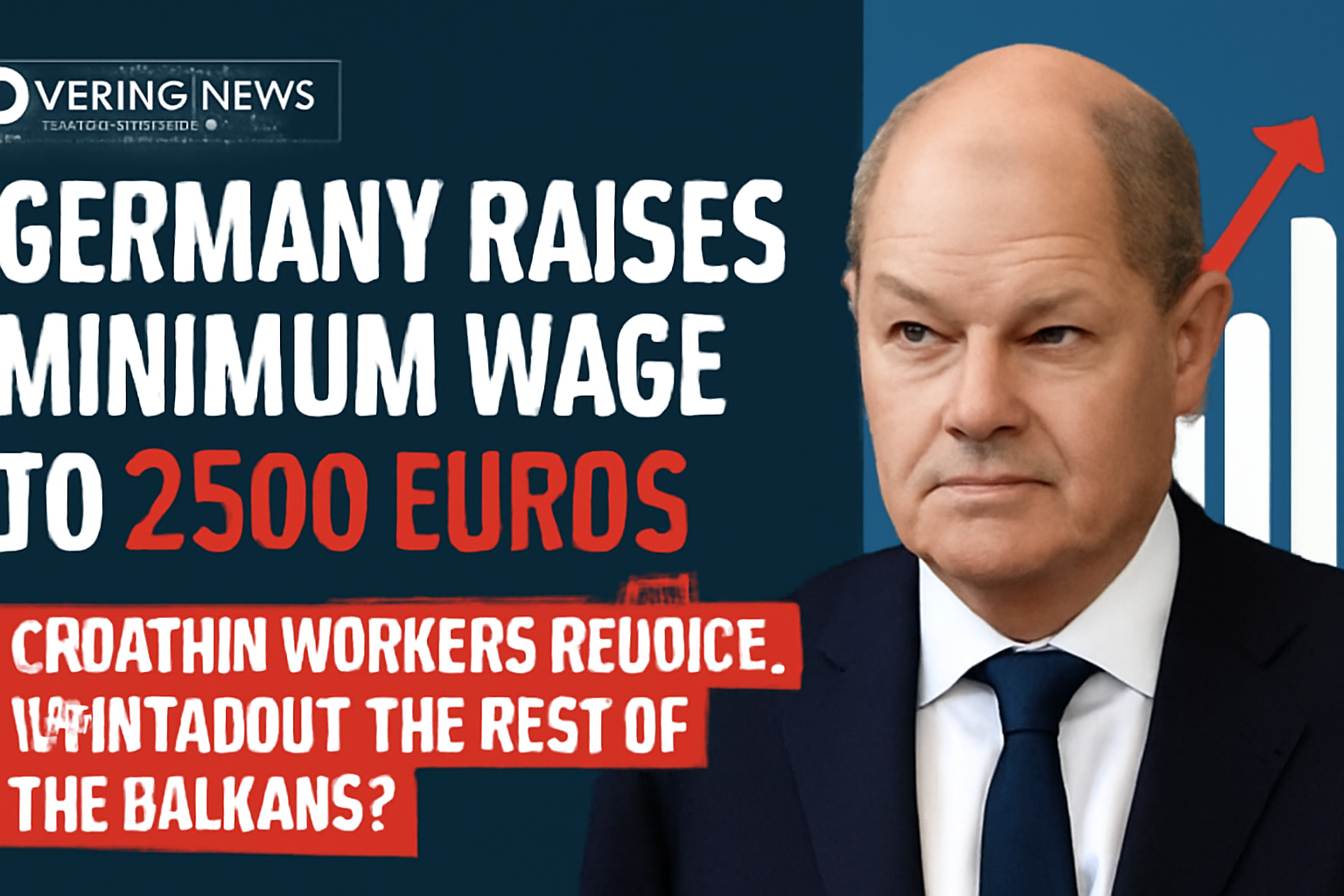Germany has decided to raise the minimum wage to about 2500 euros gross per month, making it the second highest in the European Union after Luxembourg! This is fantastic news for half a million Croats and other Balkan workers in Germany, as their hourly wage will increase to 14.60 euros, then to 15.30 euros over the next two years. The minimum wage in Croatia is currently around 700 euros, and the median wage about 1100 euros, which means the gap is huge.
However, the situation in the German labor market is not so simple. Currently, about one million people are unemployed, and around three million are so-called ‘silent reserves’ – people who would like to work but cannot due to childcare duties, poor health, or other reasons. Despite employers complaining about a lack of workers, the reality is much more complex.
Why does this matter? Because many from the Balkans will look at Germany as a land of great opportunities and wages that can change lives. But what are the Balkan countries doing about minimum wages? Unfortunately, little or nothing. Minimum wages remain low, and inflation eats away purchasing power.
This increase in Germany’s minimum wage could trigger labor migration, as people won’t want to work for low pay at home when they can earn three times more abroad. Seasonal workers and those in lower-paid sectors will be especially affected. Will the Balkans manage to keep their workers, or will Germany simply ‘steal’ the workforce?
In short, Germany is raising the minimum wage to about 2500 euros per month, the second highest in the EU. Balkan workers in Germany will be thrilled, while the Balkans remain stuck with low wages and labor market problems. Is this the beginning of the end for Balkan labor force or a chance for change? Share your thoughts, maybe you have the solution to this economic storm!









